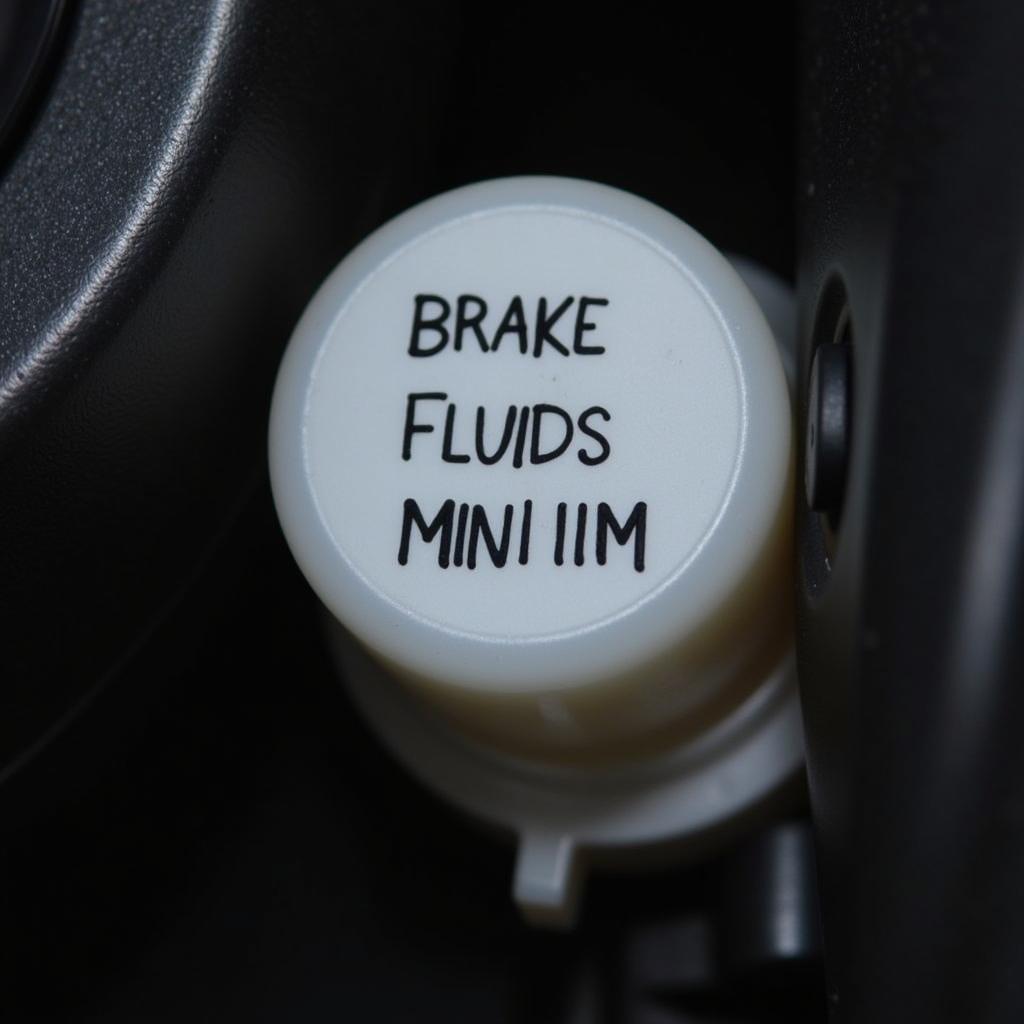The VW Passat ABS and ESP warning lights illuminating on your dashboard can be a disconcerting experience. It often signifies a problem with your vehicle’s braking system, and addressing it promptly is crucial for your safety. This article will delve into the common reasons behind this warning, how to diagnose the issue, and potential solutions.
Understanding ABS and ESP
Before exploring the causes of these warning lights, let’s briefly understand what ABS (Anti-lock Braking System) and ESP (Electronic Stability Program) are.
- ABS prevents wheel locking during hard braking, allowing you to maintain steering control and shorten braking distance.
- ESP enhances stability by detecting and correcting potential skids or loss of control.
When either system encounters a malfunction, the corresponding warning light will illuminate on your dashboard.
Common Causes of VW Passat ABS and ESP Warning Lights
Several factors can trigger the ABS and ESP warning lights on your VW Passat. Some common culprits include:
1. Faulty Wheel Speed Sensor
The wheel speed sensors are crucial components for both ABS and ESP, as they provide information about the speed of each wheel. A malfunctioning sensor can lead to inaccurate readings, causing the systems to malfunction.
2. Problems with the ABS Control Module
The ABS control module is the brain behind your anti-lock braking system. If this module malfunctions, it can disrupt the proper functioning of both ABS and ESP.
3. Low Brake Fluid
The brake fluid level is critical for the proper operation of your braking system. Low fluid can impair the pressure needed to activate the ABS and ESP systems, triggering warning lights.
4. Faulty Brake Light Switch
The brake light switch plays a role in engaging the ABS and ESP systems. A faulty switch can prevent these systems from activating correctly, resulting in warning light illumination.
5. Electrical Issues
Wiring problems or issues with the electrical connections between the ABS/ESP components and the control module can lead to malfunctioning systems.
Diagnosing the Issue
Pinpointing the exact cause of the warning lights can be challenging. Here’s a recommended approach:
- Check the Brake Fluid Level: Ensure your brake fluid is within the acceptable range. If it’s low, top it off and inspect for leaks.
- Inspect the Brake Light Switch: Look for signs of damage or wear on the switch. If you suspect it’s faulty, consider replacing it.
- Scan for Diagnostic Trouble Codes (DTCs): Using an OBD2 scanner, you can retrieve any error codes stored within the vehicle’s computer system. These codes can provide valuable insights into the problem.
- Consult a Trusted Mechanic: If you’re unable to identify the issue yourself, consult a trusted mechanic specializing in VW vehicles. They can utilize advanced diagnostic equipment and expertise to pinpoint the source of the problem.
Solutions
Once the cause of the warning lights has been identified, the appropriate solution can be applied.
- Replace Faulty Wheel Speed Sensor: If a sensor is defective, it needs to be replaced with a new one.
- Repair ABS Control Module: If the control module has malfunctioned, it may need repair or replacement depending on the nature of the issue.
- Address Electrical Issues: Any wiring problems or faulty connections need to be repaired to ensure the systems function correctly.
- Replace Brake Light Switch: If the switch is faulty, it should be replaced with a new one.
Expert Insight:
“The ABS and ESP warning lights on a VW Passat should never be ignored,” advises John Doe, a seasoned automotive technician. “These systems are crucial for safety, and a malfunctioning braking system can lead to dangerous consequences.”
FAQs
1. Can I still drive my car if the ABS and ESP warning lights are on?
While you can still drive, it’s best to avoid aggressive driving and hard braking until the issue is addressed. The warning lights indicate a potential problem with your braking system, and ignoring it could lead to reduced safety.
2. How much does it cost to fix ABS and ESP problems?
The cost of repairs varies depending on the cause of the problem. Replacing a wheel speed sensor is typically less expensive than repairing or replacing the ABS control module.
3. What are the potential consequences of ignoring these warning lights?
Ignoring these warning lights can increase the risk of accidents. If your ABS and ESP systems are not functioning properly, you may have difficulty maintaining control of your vehicle during an emergency braking situation or when navigating slippery roads.
Conclusion
The VW Passat ABS and ESP warning lights illuminate when a problem is detected with your vehicle’s braking system. Addressing these issues promptly is crucial for safety. By understanding the potential causes, diagnosing the problem correctly, and applying the appropriate solutions, you can ensure the reliable operation of your vehicle’s braking system and maintain a safe driving experience.

